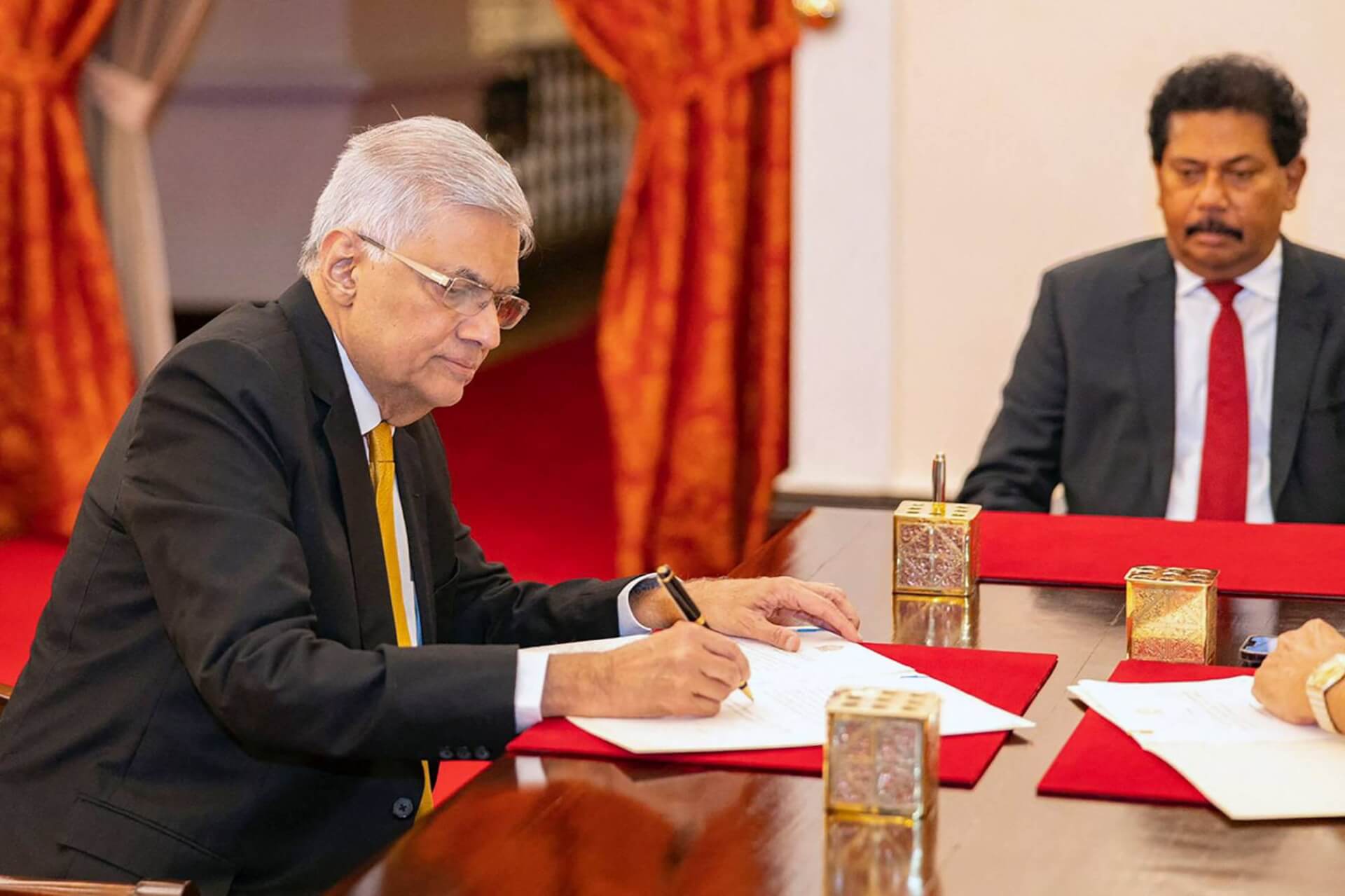Opposition leader Sajith Premadasa warned of “anarchy” after the parliament voted to appoint Ranil Wickremesinghe as the eighth president of Sri Lanka, saying, “This is now an outdated parliament with a mandate for an ousted president.”
His warnings were echoed by protesters at the Galle Face Green, who have been camped at the protest site for over a hundred days. Demonstrators said the parliament took a “decision against the wishes of the people,” noting that Wickremesinghe was first appointed as prime minister (PM) by now-former President Gotabaya Rajapaksa. In this regard, they said that protests will continue until Wickremesinghe also resigns.
Addressing a crowd of protesters, Inter-University Student Federation leader Wasantha Mudalige declared, “Ranil isn’t our president … the people’s mandate is on the streets.” Another protester told Al Jazeera that Wickremesinghe is even “more cunning” than Rajapaksa.
New President @RW_UNP must resgin immediately; We continue our protest until that: Peaceful Protesters announced #GalleFaceProtest #lka #SriLanka #SriLankaCrisis #ProtestLK pic.twitter.com/NI0RergIxl
— Vidiyal.lk 🇱🇰 (@Vidiyallk) July 20, 2022
Much of the anger stems from the fact that Wickremesinghe is an appointee of the Rajapaksa administration, which protesters have sought to bring down since the demonstrations first began.
In May, former President Gotabaya Rajapaksa replaced his brother Mahinda Rajapaksa with Wickremesinghe as PM. Soon after, Rajapaksa was forced to leave the country, stepped down from his position, and appointed Wickremesinghe as acting president.
Protestors thus view Wickremesinghe as an extension of the Rajapaksa administration. For instance, they raised concern about his decision to declare an emergency to curb public unrest and deploy air force helicopters to the Galle Face protest site. Opposition to his rule has come from all quarters of society, including students, Buddhist monks, and the Catholic clergy.
Swearing in of President Ranil Wickremesinghe. #SrilankaPresident #SriLanka pic.twitter.com/R9v8tZD5om
— Jamila Husain (@Jamz5251) July 21, 2022
That being said, protestors were also unsatisfied with Wickremesinghe’s main rival for the position, Dullas Alahapperuma, who they said lacks governing experience, in stark contrast to Wickremesinghe, a six-time PM. Such experience will be vital in steering the country out of its political and economic crisis and in leading discussions with the International Monetary Fund.
United National Party (UNP) leader Ranil Wickremesinghe was appointed president until 2024 after securing 134 votes in the parliament on Thursday. Meanwhile, Alahapperuma secured 82 votes, while Anura Kumara Dissanayake secured merely three votes. Four out of the 223 votes cast in the 225-seat parliament were considered invalid.
The armed forces and police were deployed in the run-up to the vote to ensure the safety and security of the leaders as well as the electoral process.
Since March, the people of Sri Lanka have been exercising their right to protest. Here's what's been happening 👇 pic.twitter.com/SnUX64J13B
— Amnesty International (@amnesty) July 18, 2022
As Wickremesinghe took over as president, he automatically stepped down from the role of PM and as a member of parliament (MP). Therefore, his first key responsibility is to appoint a PM to lead the new government.
After taking over as president, Wickremesinghe vowed to work with Alahapperuma and Dissanayake, reassuring them that the divisions created in the 48 hours in the run-up to the election were now over. “We have to create a new strategy to move forward. People are demanding not the old politics. They ask the parliament to carry forward the work in a united manner,” he said.
Wickremesinghe has maintained his position as a key political leader in Sri Lankan circles since he entered the parliament in 1977. Although he has now served as PM on six previous occasions, he has never completed a term in the role.

